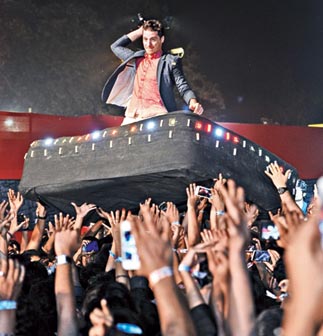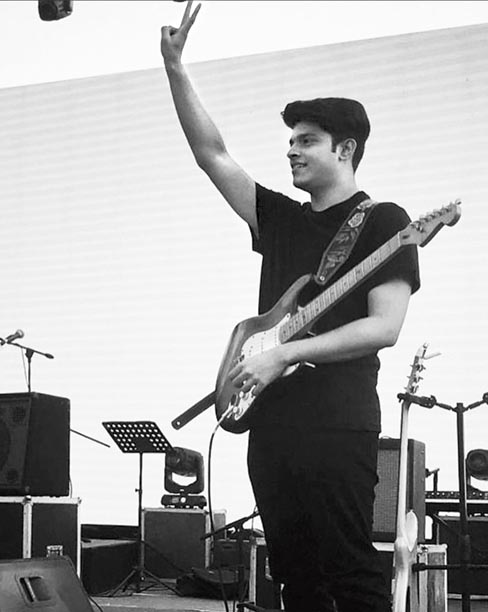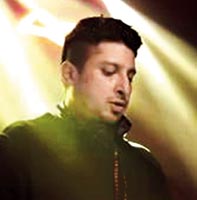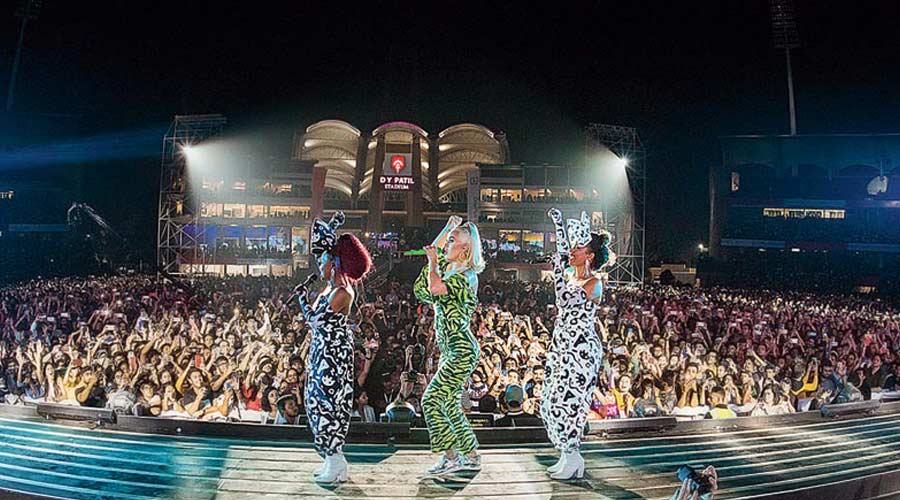The Covid-19 threat might be still looming large, but there’s a semblance of normalcy in our lives, albeit frought with new rules and protocols. We have all embraced the #NewNormal and are moving ahead with our lives. One of the industries that appears to be bouncing back with a bang is music. International as well as Indian musical acts are travelling to perform in Calcutta almost every other weekend while big groups of people are partying as much as nightclubs allow due to pandemic-related protocols. In this scenario, a new trend that we are noticing is that much of the action is restricted to a few genres of music.
“Now that we are opening up, there has been a shift in audience taste and economics also come into play,” says city-based vocalist Tanya Sen. “Young crowds like electronic music but there are ups and downs in every industry,” she adds.

Singer Tanya Sen
Money matters
The electronic scene is roaring because it is cheaper, easier and faster to book electronic musical acts. A band has a number of members, instruments, soundcheck and other requirements. “There are gigs happening and I am getting enquiries for performances with the band at wedding gigs that’s probably a place where electronic music can’t enter at the moment,” Tanya says. The singer believes that small steps, like playing in private clubs, will pave the way for a bigger live music scene.

Mutemath frontman Paul Meany crowd-surfs on a mattress at Nicco Park during Bacardi NH7 Weekender in 2014
“I too am inclined towards electronic music but there is a certain kind of it that I like. As a live musician and producer I try to merge genres, alt rock and electronic stuff which appeals to this generation,” says Dipan Basak. Some of the more recent music releases have been adapting electronic sounds, which Dipan thinks can go a long way. For example, Coldplay’s latest release, Music of the Spheres, is an amalgamation of electronic music with drums and guitars. Although electronic music could be booming at the moment, it’s not a replacement for the bigger live music scene.

Piyush Choubey or YÜSH, a hip-hop artiste from Calcutta
You know it’s going to be a good night when an outstation artiste takes the main stage, giving indie artistes a chance to showcase their talent. But when booking an artiste, organisers must have knowledge about what beckons an audience and what doesn’t. “Be it electronic or live gigs, if you book someone blindly you might not get the best response,” says Ankytrixx. And since techno is booming right now a lot of international and national artistes have been touring the country.

New to the indie music scene, Dipan Basak
But why can’t the same tours be booked with bands as well? Well, there are many factors. It is easier to fly one artiste down, book one hotel room and host them than do the same with an entire band. They have equipment, there are more people involved, more rooms to book… and this is at a time when the audience is enjoying electronic music. “Also, live acts have to prepare a set that consists of their tracks and the process can be time-consuming. DJs, however, play a mix of self-produced tracks and also have the option of sending music from one person to another, anywhere in the world. Hence, it is easier to get booked frequently,” he said.
Before the pandemic, techno was still a genre that people were getting used to and now it calls for special gigs every weekend. Live music, on the other hand, is making a slow progress.

Techno artiste Ankytrixx
A dedicated space
Live music in Calcutta differs greatly with the genre that is being played. Jazz and rock bands have always had a special place with venues like Someplace Else, Trincas and others. But for genres like hip-hop and R&B, the scene is more culturally based where the artiste, listener and venue have to put in equal amounts of effort. There are many up and coming artistes in Calcutta but the number of them doing hip-hop and R&B is low and are still finding their sound. Although big names are making an impression, city-based rapper YÜSH thinks event spaces avoid seeking them out, getting them on board to do an event. “There are multiple venues in the city but they lack a certain vision. Every venue is trying to do every genre, but there’s not a single space, other than Saz, which is new, that has dedicated their space to a genre,” he says. If not a dedicated place, venues need to dedicate a day to a type of genre for partying. For example, Phoenix at The Astor dedicated Wednesday nights to hip-hop with DJ RishiBoy manning the console. “But it is a Wednesday night and people with a day job won’t make it to the performance. And places won’t invest in a hip-hop night because they think techno is going to bring in a good crowd and money,” he adds.
To sum up, the crowd is at the moment enjoying electronic music but it’s also the responsibility of event organisers to revive interest in live music.
